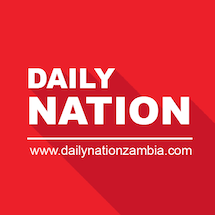URGENT ECONOMIC PLAN VITAL

By BUUMBA CHIMBULU
ZAMBIA needs to urgently institute a massive and demonstrable inward looking economic recovery plan that emphaises cost saving programmes that cut across all sectors of the economy, especially in areas where savings can be made to help generate revenue to pay the bondholders, an economist John Kasanga has recommended.
Mr Kasanga argued that Zambia could only convince the creditors for debt referral payments if it had a strong case of revenue generation to prove that it would be able to pay back the loans, and the plan should conclude discussions with IMF.
“We have to demonstrate how we are going to generate resources locally, Government right now is asking for deferral payment. The debt burden will still be there, we may delay when it has to be paid but we will still have to pay,” he said.
Mr Kasanga emphasised that Zambia needed to demonstrate how it would generate revenue locally to meet the payments even if the country would be granted debt relief.
While most Zambians may be poor the country was rich, blessed with abundant natural resources which could be exploited in an aggressive economic recovery plan. The onus should be on stimulating and supporting the private sector to create wealth and employment, especially among small enterprises that have suffered most from business and job losses in the Covid-19 pandemic.
Economic recovery plan with a timeline, which ministries must have clear goals and work programmes.
Government has engaged bondholders to request for debt relief due to the limited fiscal space.
The bondholders who were supposed to vote on Zambia’s request on Tuesday this week postponed their meeting to November 13, 2020 after failing to reach quorums.
Zambia has US$3 billion of Eurobonds outstanding and owes US$2 billion to commercial banks, US$2 billion to the International Monetary Fund and World Bank and another US$3 billion to China.
On September 20, 2022, Zambia’s first Eurobond will mature and Government will be required to settle its principal payment amounting to US$750 million in full.
Stakeholders have taken keen interest watching on how the country will be able to meet its debt obligations with John Kasanga, an economist, strongly advocating for a demonstrated cost saving programme which would present a strong case for creditors.
And Economics Association of Zambia (EAZ) president, Lubinda Haabazoka, said the country needed to urgently find a way of convincing the creditors that it would still meet its loan obligation even after being granted deferment.





